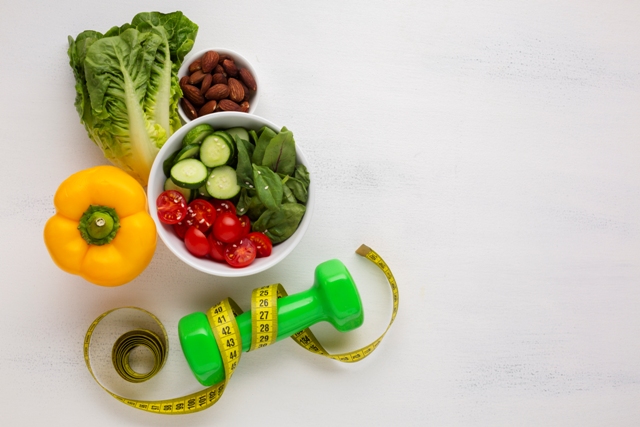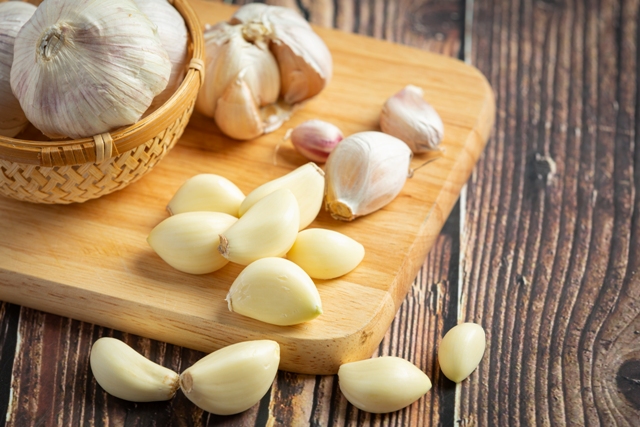Nitric oxide is one of the most important molecules of the body that offers numerous health benefits. It mainly helps to dilate blood vessels as a result plays significant role in increasing blood circulation, which ultimately reduces increased blood pressure. It is also associated with improving athletic performance and brain functionality
This article will discuss about 20 natural ways that significantly improve the nitric oxide level in body –
Always consume foods, which are rich in dietary nitrate
- Nitrate is a compound, which is responsible for producing nitric oxide in body thus its consumption is very effective for maintaining a healthy nitric oxide level
- Nitrates are commonly found in various vegetables like cress, celery, spinach, arugula, lettuce etc thus they should be included in the diet
Increase your antioxidant intake
- Nitric oxide is very unstable component as a result it degrades more rapidly thus depletion of nitric oxide level occurred in body
- Consumption of antioxidants is closely related with increasing the stability of nitric oxide and antioxidants also help to preserve nitric oxide by protecting it from damages
- Thus foods which are rich in antioxidants or which contain significant amount of Vitamin E, Vitamin C, glutathione, polyphenols should be included in the diet
Include beet

- Beet contains adequate amount of nitrate, thus its consumption is thought to be really very effective for contributing nitrates in body which is then converted into nitric oxide
- It has seen that consumption of beetroot juice or its supplements improves the level of nitric oxide in both genders in many folds
Try garlic
- Consumption of garlic is very effective for boosting up the nitric oxide level in body as it is associated with promoting the activity of the enzyme nitric oxide synthase that helps in nitric oxide production
- It has seen that consumption of garlic or its extract increases the nitric oxide in body by about 40% after one hour of consumption

Meat and sea foods
- Meat, sea foods as well as poultry are considered as good sources of CoQ10, which play vital role in preserving nitric oxide within the body
- It has seen that fatty fish, organ meat or muscles like chicken, beef, pork etc contain higher amount of CoQ10 thus they should be included in the diet
Enrich your diet with green leafy vegetables
- Consumption of green leafy vegetable is extremely useful for enhancing nitric oxide level in blood as well as in tissue
- They are also considered as good source of nitrate, which is responsible for producing nitric oxide within body
Add citrus fruits in diet
- Vitamin C helps to stimulate the activity of the enzyme nitric oxide synthase, which is responsible for synthesizing nitric oxide as a result it helps to boost up nitric acid production. Whereas it is also associated with increasing the absorption of nitric oxide thus its consumption is thought to be an effective way for improving nitric oxide level in body
- It also plays vital role in enhancing the bioavailability of nitric oxide
- Basically citrus fruits such as amla, lemon, orange, lime, grapefruit are considered as the richest source of Vitamin C thus they should be included in the diet in order to maintain a healthy nitric oxide level

Try Pomegranate
- Pomegranate is packed with antioxidants, which are responsible for preserving nitric oxides as a result helps to maintain their level
- Whereas it is also associated with protecting various important biological substances from damages
Have watermelon
- Watermelon is significantly rich in an amino acid named citrulline that produces arginine, which is then converted into nitric oxide
- Incorporation of watermelon in diet is thought to be very effective for boosting up the nitric oxide level in body
Have some nuts and seeds
- Nuts and seeds contain adequate amount of arginine
- Arginine is an amino acid, which is converted into nitric oxide in body and this reaction is catalysed by the enzyme nitric oxide synthase. Thus it is better to include nuts and seeds in diet for providing nitric oxide level a boost
Have nitric oxide supplements
- Consumption of nitric oxide supplementation is another effective way of improving nitric oxide level in body
- L Citrulline, L Arginine are considered as the commonly available supplements that help to boost up nitric oxide production
Sun exposure
- When you will get sunlight then the nitrite present in your skin cells tend to react with the respective sunlight and produces dermal nitric oxide
- Dermal nitric oxide is extremely helpful for promoting dermal immunological responses, wound healing and dermal vasodilation


Physical exercise
- Dump exercises are very effective for increasing nitric oxide level
- It is also associated with strengthening muscles, tendons and ligaments
Manage your stress level
Increase in the stress level significantly decreases nitric oxide level in body thus it is always better to be calm and relaxed in order to reduce the stress level, which subsequently increases nitric oxide concentration
Avoid too much salt consumption
- It has seen that excessive intake of salt decreases nitric oxide production and causes various health hazards thus it is better to restrict daily salt intake for promoting nitric oxide production
- In order to keep up the nitric oxide level within body, it is better to avoid the consumption of too much salty foods
Prevent depletion of nitric oxide level
It has seen that excessive usage of Antibacterial mouthwash as well as fluoride in toothpaste or drinking water may deplete nitric oxide level thus it is better to avoid their usage if nitric oxide deficiency is already developed within body

Better to say no to smoking and alcohol
- It has seen that smoking drastically decreases nitric oxide level in body by inhibiting the activity of nitric oxide synthase within pulmonary arterial endothelial cells
- Whereas excessive consumption of alcohol is also responsible for decreasing nitric oxide bioavailability as a result reduces the level of nitric oxide in body. It affects endothelial health too
- Thus it is better to avoid smoking as well as alcohol consumption for maintaining a healthy nitric oxide level
Avoid the consumption of saturated fat
- If you want to increase your nitric oxide level in body then you have to restrict your daily saturated fat consumption
- Saturated fat decreases the ability of the body to produce nitric oxide thus it is better to consume less saturated fat in order to improve nitric oxide level
Stay away from cholesterol rich food components
- Consumption of high cholesterol food is directly linked with increasing the level of blood cholesterol in body and increased blood cholesterol is responsible for decreasing the bioavailability of nitric oxide, which further provide a negative impact on endothelial health as well as cardiovascular health
- It is thus better to decrease high cholesterol food intake for improving the bioavailability of nitric oxide in body

Avoid excess sugar consumption
- Too much consumption of sugar is not a wise choice as it is related with increasing blood glucose level that ultimately results in an imbalance of superoxide as well as nitric oxide level in body, which is accountable for impairing endothelial functions as well as renal activity
- Thus it is better to avoid the consumption of too much sugar in order to maintain a healthy blood sugar level, which ultimately helps to prevent the depletion of nitric oxide in body
Nitric oxide is a very important component that is involved in various aspects of health and the above stated remedies are extremely effective for increasing their level in body naturally

Source:
Bondonno, C.P., Yang, X., Croft, K.D., Considine, M.J., Ward, N.C., Rich, L., Puddey, I.B., Swinny, E., Mubarak, A. and Hodgson, J.M., 2012. Flavonoid-rich apples and nitrate-rich spinach augment nitric oxide status and improve endothelial function in healthy men and women: a randomized controlled trial. Free Radical Biology and Medicine, 52(1), pp.95-102.
Bryan, N.S., 2018. Functional nitric oxide nutrition to combat cardiovascular disease. Current atherosclerosis reports, 20(5), pp.1-12.
DePace, N.L. and Colombo, J., 2019. Nitric Oxide (Prong-2). In Clinical Autonomic and Mitochondrial Disorders (pp. 71-138). Springer, Cham.
Medina-Remón, A., Tresserra-Rimbau, A., Pons, A., Tur, J.A., Martorell, M., Ros, E., Buil-Cosiales, P., Sacanella, E., Covas, M.I., Corella, D. and Salas-Salvadó, J., 2015. Effects of total dietary polyphenols on plasma nitric oxide and blood pressure in a high cardiovascular risk cohort. The PREDIMED randomized trial. Nutrition, Metabolism and Cardiovascular Diseases, 25(1), pp.60-67.
Milkowski, A., Garg, H.K., Coughlin, J.R. and Bryan, N.S., 2010. Nutritional epidemiology in the context of nitric oxide biology: A risk–benefit evaluation for dietary nitrite and nitrate. Nitric oxide, 22(2), pp.110-119.
Wu, G. and Meininger, C.J., 2002. Regulation of nitric oxide synthesis by dietary factors. Annual review of nutrition, 22(1), pp.61-86.




